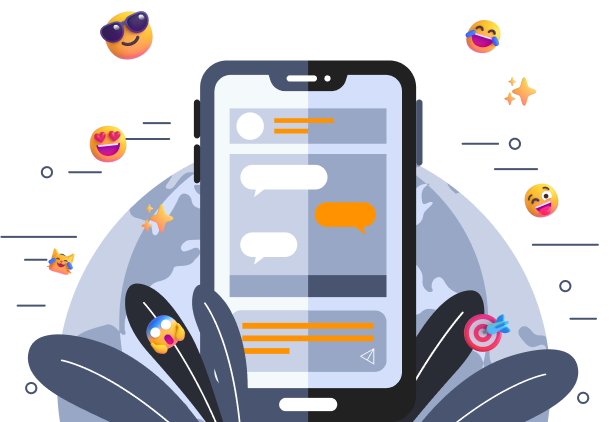Explore the top challenges faced by translation services in Dubai, from cultural nuances to tech integration, and how they strive to maintain quality.
Running
One of the primary challenges is dealing with linguistic diversity. Dubai hosts a population that speaks Arabic, English, Hindi, Urdu, Tagalog, Russian, Farsi, and many more languages. Translation professionals must navigate this maze daily. A single project might involve multiple language pairs, each with its own grammatical rules, slang, and cultural context. Ensuring accuracy while respecting these nuances requires deep expertise. Even a small misstep can alter the meaning of a document, leading to miscommunication or even legal complications.
Another major issue for translation services in Dubai is maintaining cultural relevance. Words don’t always carry the same meaning across cultures. Idioms, jokes, metaphors, and even color symbolism can vary greatly. For example, a phrase that works well in English marketing copy might be confusing or offensive in Arabic. Translators must have more than language skills—they need cultural intelligence. Adapting messages while keeping the brand’s tone intact is a fine balance that requires experience and local insight.
The legal landscape also adds complexity. Many businesses in Dubai require certified translations for legal documents like contracts, licenses, and immigration paperwork. These must be accurate to the last word and often need approval from government departments. Translation services must stay up to date with legal standards, formatting rules, and terminology. Moreover, they need certified translators on their team. Any error could delay applications or lead to rejection, affecting clients’ personal or business affairs.
Deadlines are another constant pressure. Dubai’s fast-paced economy doesn’t wait. Clients often expect quick turnarounds, especially in sectors like tourism, healthcare, and real estate. High volume projects with tight deadlines are the norm, not the exception. This puts translation teams under stress to deliver without compromising on quality. To keep up, many services invest in project management tools and rely on technology to automate parts of the process. Still, the human touch remains irreplaceable for maintaining accuracy and tone.
Technology itself brings both benefits and challenges. Translation software and AI tools are now widely used to speed up work. While helpful, they are not perfect. Machines can mistranslate idioms or miss the emotional tone of a message. Therefore, post-editing by human translators becomes necessary. This hybrid approach adds another layer to the process. Translators must be trained not just in languages but also in using digital tools effectively. This learning curve, along with the need for regular software updates and subscriptions, can strain resources.
Another concern is data privacy and confidentiality. Clients share sensitive documents—business contracts, medical reports, financial statements. Translation services in Dubai must handle this data securely. With remote work becoming more common, ensuring secure communication channels and file sharing is critical. Any data breach could damage trust and lead to serious consequences. Services must invest in cybersecurity, sign NDAs, and educate their team about data handling protocols. This adds to their operational overhead.
Finding skilled translators is also an ongoing challenge. While Dubai attracts global talent, not all bilingual professionals are qualified translators. High-quality translation demands linguistic skill, domain knowledge, and attention to detail. Legal, medical, and technical translations require specialists who understand industry-specific terminology. Recruiting and retaining such talent can be difficult. Furthermore, maintaining quality standards across freelance translators working remotely requires strong communication and quality control processes.
Client expectations can sometimes be unrealistic. Many assume that translation is a simple word-for-word exchange. They don’t always understand the time, skill, and nuance required for a professional job. As a result, they may push for lower prices or faster delivery without understanding the impact on quality. Educating clients about the value of proper translation is essential, yet time-consuming. Services often need to balance client education with meeting deadlines and staying competitive.
Cost competition is fierce too. With many freelancers offering low rates and online platforms driving down prices, established translation services in Dubai must work hard to justify their value. They have overhead costs—project managers, editors, QA processes, and office infrastructure—that freelancers might not. Yet, they must price competitively while maintaining profitability. This requires smart budgeting, efficient processes, and a focus on delivering exceptional quality that speaks for itself.
Then there is the challenge of marketing and visibility. In a crowded marketplace, standing out is tough. SEO, digital advertising, and content marketing have become necessary tools to attract clients. Translation agencies must not only be language experts but also savvy marketers. Many are now investing in bilingual websites, multilingual SEO strategies, and social media to grow their brand. Balancing service delivery with marketing efforts adds another layer of work to their daily operations.
Lastly, staying updated with industry changes is crucial. The translation industry is evolving fast. New trends in localization, voice search, AI-generated content, and UX writing are shaping client demands. Translation services in Dubai must keep pace. They need to invest in ongoing training, attend industry webinars, and constantly update their offerings. This requires both time and money, which smaller agencies might struggle to allocate.
Despite all these challenges, translation services in Dubai continue to thrive. The city’s international environment ensures a steady demand for multilingual content. Businesses, government entities, and individuals all rely on accurate, timely translation. To meet these needs, services are adapting, investing in talent, embracing technology, and building strong client relationships. It’s not an easy path, but it is one that promises long-term growth and impact. In the end, those who navigate these challenges well set themselves apart as trusted partners in global communication.




















